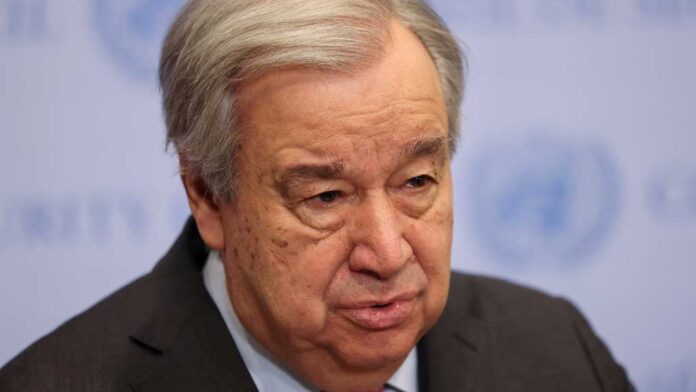United Nations Secretary-General António Guterres has expressed deep concern over India’s recent military actions in Pakistan and Pakistan-administered Kashmir, calling for maximum restraint from both sides amid the escalating conflict between the nuclear-armed neighbors, his spokesperson said Tuesday.
WHY IT MATTERS
Guterres had already warned earlier this week—before India launched its strikes—that tensions between India and Pakistan were “at their highest in years” following the April 22 Islamist militant attack in Indian-administered Kashmir that killed 26 people. He had strongly condemned the incident, describing it as an “awful terror attack.”
India launched airstrikes on targets in Pakistan and Pakistani-controlled Kashmir late Tuesday, U.S. time (Wednesday in Asia), while Pakistan claimed to have shot down several Indian fighter jets. The clashes mark the most severe military escalation between the two countries in more than two decades.
KEY QUOTES
“The Secretary-General is very concerned about the Indian military operations across the Line of Control and the international border. He calls for maximum military restraint from both countries,” Guterres’s spokesperson stated.
“The world cannot afford a military confrontation between India and Pakistan.”
PRIOR STATEMENTS
“Tensions between India and Pakistan are at their highest in years. I strongly condemn the awful terror attack in Pahalgam on 22 April. It is essential—especially at this critical hour—that India and Pakistan avoid a military confrontation that could easily spin out of control,” Guterres said Monday.
Late last month, the UN chief also held separate conversations with Pakistan’s Prime Minister Shehbaz Sharif and India’s Foreign Minister Subrahmanyam Jaishankar, offering the UN’s support for any de-escalation efforts, according to his spokesperson.
CONTEXT
The Kashmir region, with a Muslim-majority population, is claimed in its entirety by both India and Pakistan. The two countries each control parts of the territory and have fought several wars over it. The longstanding dispute continues to be a major flashpoint in South Asia.



